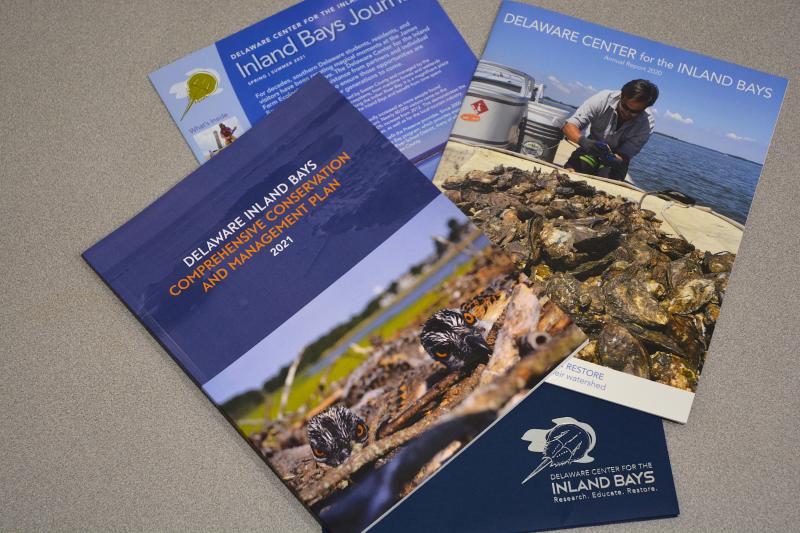Center for Inland Bays releases revised management plan
Looking to provide a roadmap for how to preserve and protect Delaware’s Inland Bays for years to come, the Delaware Center for the Inland Bays has released its 2021 Comprehensive Conservation and Management Plan.
Similar to comprehensive development plans for the state’s cities and towns, the CCMP serves as the document that will guide the CIB toward cleaner bays, healthier habitats and sustainable communities. CIB published its original CCMP in 1995. Since then, the center and its partners have eliminated or mitigated all direct sources of pollution to the estuary.
According to the center, from 1992 to 2012 alone, the watershed has seen developed lands increase by 34 square miles. More impervious cover leads to increased pollution reaching local waterways, which can have devastating effects on the health of the bays and people, said Chris Bason, CIB executive director, during a Nov. 19 event at the Hyatt Place Dewey Beach, which overlooks the northern end of Rehoboth Bay.
Coming together doesn’t solve problems, said Bason. There has to be a plan, and this document will serve as the center’s guiding star for the next decade, he said.
Michelle Schmidt, Center for the Inland Bays watershed coordinator, facilitated the creation of the 2021 CCMP, which took hundreds of hours and dozens of meetings. She said the document emphasizes the importance of testing and monitoring innovative, new approaches to restoration and resiliency. This plan will help guide the center’s priorities for the next 10 years, she said.
According to a supplemental handout from the CIB, differences in the 2021 plan from previous plans include separating water quality issues by landscape – agricultural, developed lands; increasing the focus on land protection; and shifting focus from planning for climate change to living with climate change. The plan continues to emphasize the importance of monitoring, restoration and partnerships.
Schmidt said the impacts of land-use change are amplified by climate change. Stronger storms and heavier rainfalls across the region require proper management of stormwater runoff, she said.
Delaware Department of Agriculture Secretary Michael Scuse said it’s in everyone’s best interest, including the county’s farmers, to reduce pollution entering the Inland Bays. In addition to promoting use of cover crops through the winter, Scuse said improvements need to be made in turf and landscape management.
It’s about the right nutrient, in the right amount, at the right time, said Scuse.
Fresh from Washington, D.C., Sen. Tom Carper said the passage of President Joe Biden’s social and climate change package the day before will help the center accomplish its future goals. There’s significant funding to help restore estuaries across the country, he said.
The Center for the Inland Bay’s 2021 CCMP can be found at inlandbays.org/get-involved/ccmp/.


















































